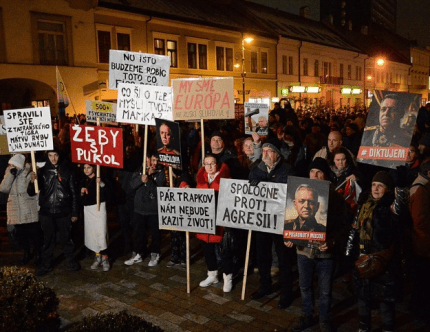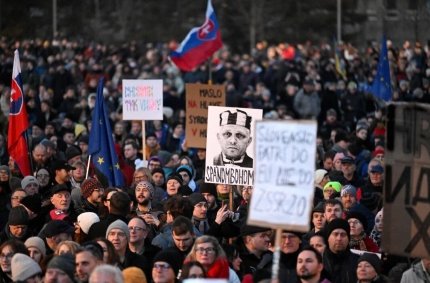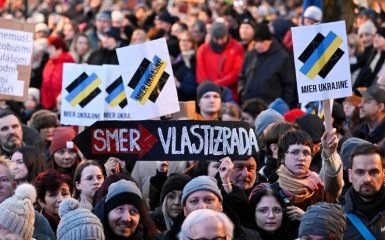Tens of thousands of protesters gathered in the central square of the Slovak capital Bratislava on January 24. Slovaks spoke out against the rapprochement of the country's Prime Minister Robert Fico's policies with Russia.
Points of attention
- Mass protests in Bratislava and 20 other Slovak cities denounce Prime Minister Fico's pro-Russian policies, calling for his resignation and advocating for a European orientation.
- Fico's government fears a potential 'Slovak Maidan' and announces preventive security measures amidst accusations of the opposition attempting to cause chaos.
- The rally in Bratislava attracted around 60,000 participants, marking a significant increase from the previous protest, with similar demonstrations taking place across the country.
- Opposition parties reject government accusations and highlight the need to address political problems instead of diverting attention through baseless claims.
- The protests were sparked by Fico's private meeting with Russian leader Vladimir Putin, leading to renewed motions of no confidence in the government by opposition parties.
Slovaks demand Fico's resignation
According to organizers, 60,000 people came to the rally on Freedom Square in Bratislava, which is about four times more than during the last protest two weeks ago.
Protesters chanted "Enough Fico" and "We are Europe."
In total, similar demonstrations also took place in 20 other cities in the Central European country.
Several thousand people took part in protests in most Slovak cities. In Košice, for example, media outlets counted 15,000 participants.

It is also reported that in some cities, protests under the slogan "Slovakia is not Ukraine" were announced. About 40 people came to such a rally in Bratislava.

Fico is afraid of the “Slovak Maidan”
It is noted that earlier this week the government accused the opposition of "attempting to cause chaos."
The government is also planning "new preventive security measures," because, according to Fico himself, the opposition is planning to escalate protests as part of an attempt to illegally overthrow the government, in particular by seizing state buildings.
Opposition political parties and civic groups organizing the protests have rejected the accusations, saying they are aimed at diverting attention from political problems that the fragile government coalition cannot resolve.
The latest round of protests came after Fico privately visited Moscow in December to meet with Russian leader Vladimir Putin.
As Ukrinform reported, on January 21, the opposition parties Progressive Slovakia (PS), Freedom and Solidarity (SaS), and Christian Democrats (KDH) again submitted a motion of no confidence in the government of Prime Minister Robert Fico.









